What do we mean by recognition?
Exploring this concept as part of our Thinkathon process…
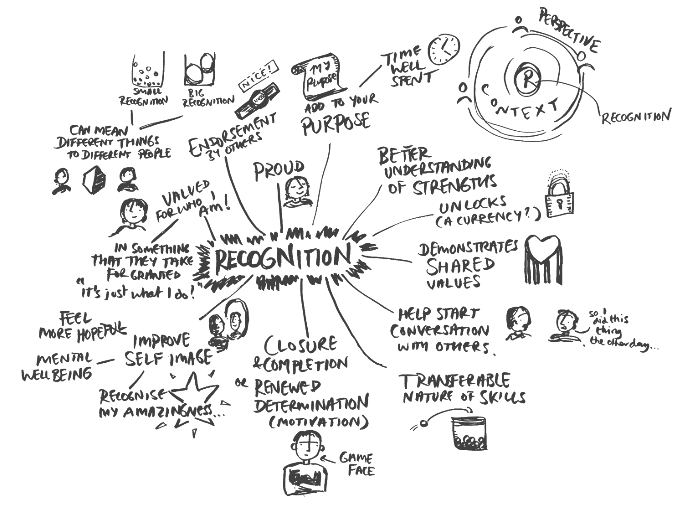
Exploring this concept as part of our Thinkathon process…
Last week, my colleague Bryan Mathers and I delivered a thinkathon for the Children’s University Scotland to help them explore how they recognise learning and could increase the visibility of their Passport to Learning awards. It was important that we considered how any developments would contribute to tackling inequity.
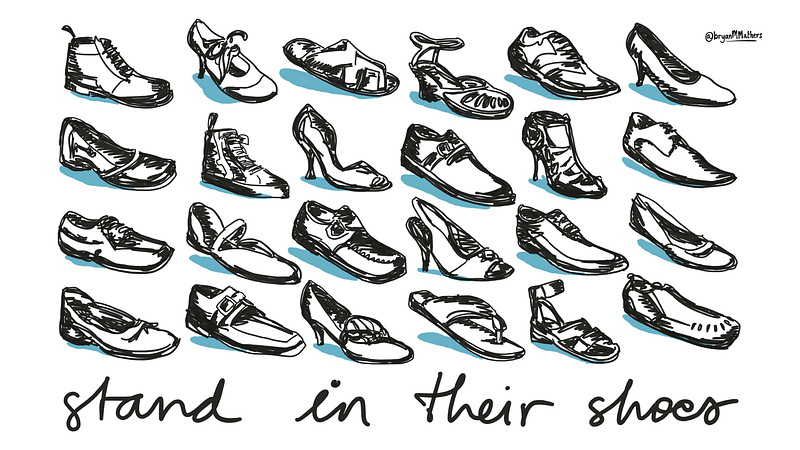
As usual with our Thinkathon process, we commenced by defining the cast. As a group we considered: Who are the people the Children’s University are trying to reach? What are they experiencing that can lead to inequity in their access to learning and recognition for their achievements? How can teachers, parents or community members contribute to support their access to learning opportunities?
We created personas of young people who might take the awards, which included a refugee, a teenager caring for his sister who has additional support needs, and a child growing up in poverty and with difficulties at home; a teacher who supports engagement but is struggling to get help or time for this from her school; and a single parent trying to juggle the stresses of providing for the family, with encouragement to her daughter to engage with learning opportunities.
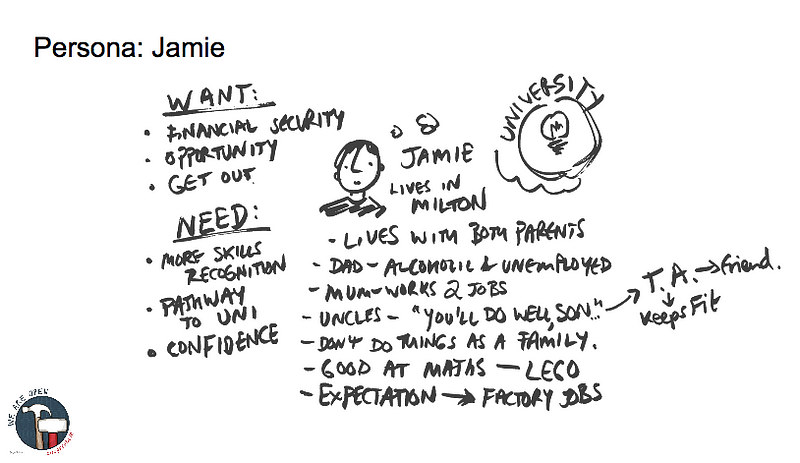
The purpose of the day was to investigate how we could improve the visibility of the awards and the learning they recognised, and how any developments would contribute to tackling inequity. Working on the premis that Open Badges could enhance the visibility and shareability of the awards in a verifiable way, it became clear that after defining a rich variety of personas, it would be useful to explore if the recognition provided via Open Badges, could help promote additional positive outcomes.
So we asked ourselves what we mean by recognition. How can we use recognition to help others? How can we use recognition to support the development of positive behaviours? How do people view recognition? How does context impact recognition? …
This reflection on what we mean by recognition and how it could encourage helpful outcomes for the Children’s University and the personas we had defined, led the group onto creating badges that included:
- Who: Nikki the teacher
- What: Recognise the skills she is gaining through running the Children’s University in her school
- Benefit: Help the headteacher at Nikki’s school to recognise the time and effort being put in by Nikki to help pupils to engage and benefit from the Children’s University. Additional benefit to the Children’s University through feedback on use of their system, which Nikki provides while engaging with the CPD and discussion forum provided
- Who: Alison, the single mother, and her daughter
- What: Engage in a learning experience together and help each other to complete the award
- Benefit: Alison and her daughter, by supporting and encouraging family learning
- Who: Samir, Euan and Jamie
- What: Gain recognition for the skills they are developing through informal learning opportunities
- Benefit: Samir, Euan and Jamie by proving to themselves and others that they have skills, even though they have struggled to engage with formal education due to challenges in their backgrounds. Seeing how these skills connect them to positive life opportunites in the form of badge pathways. Building confidence through increased self-awarness of skills and the opportunities that could stem from them
Taking a deeper dive into what we mean by recognition, helped to surface where badges could be really useful in furthering the overarching aims of the Children’s University in tackling inequity.
In addition, one of the huge benefits of the thinkathons we run is that all of the discussion and learning from the day was captured by Bryan in a visual format. We have shared these with the Children’s Univesity so that they can review the personas; our exploration of recognition; and the badges created, to remember the thinking from the day and to help them make decisions about how they take their work forward.
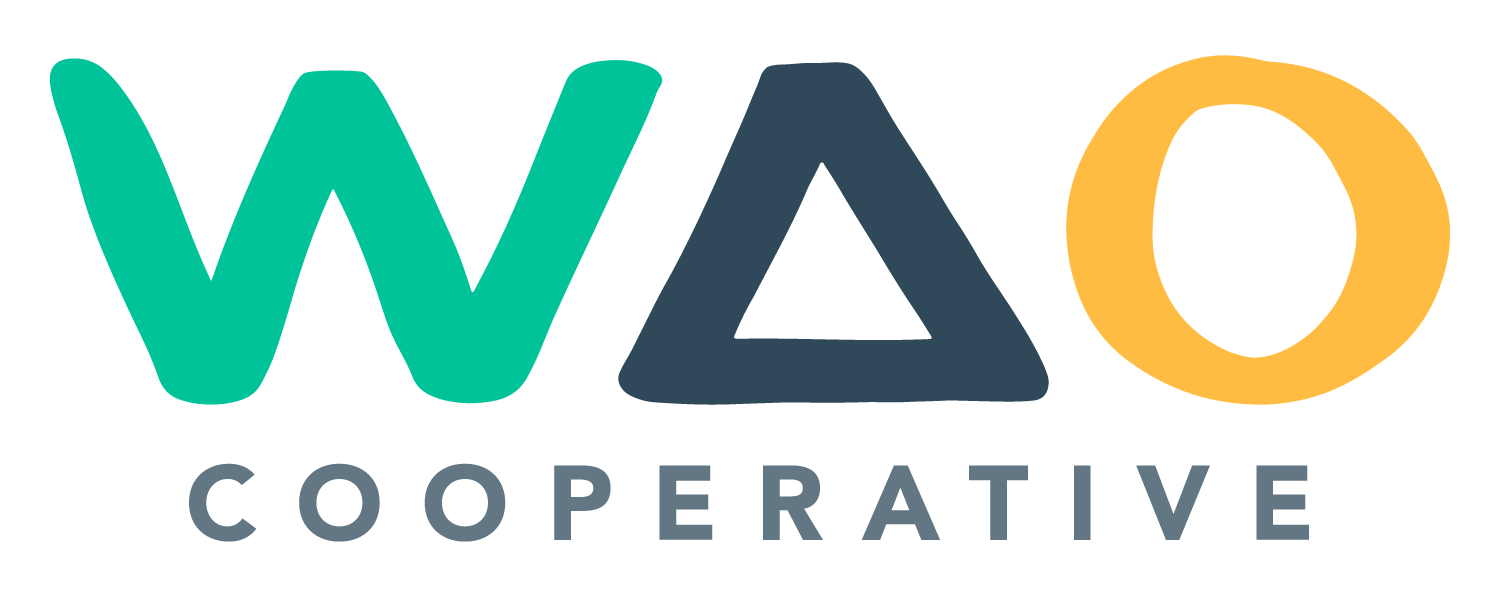
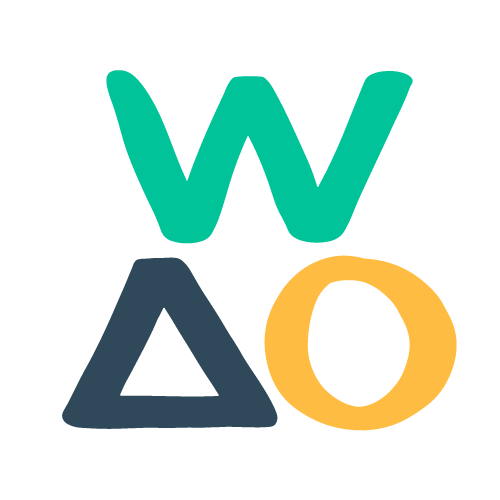
Discussion